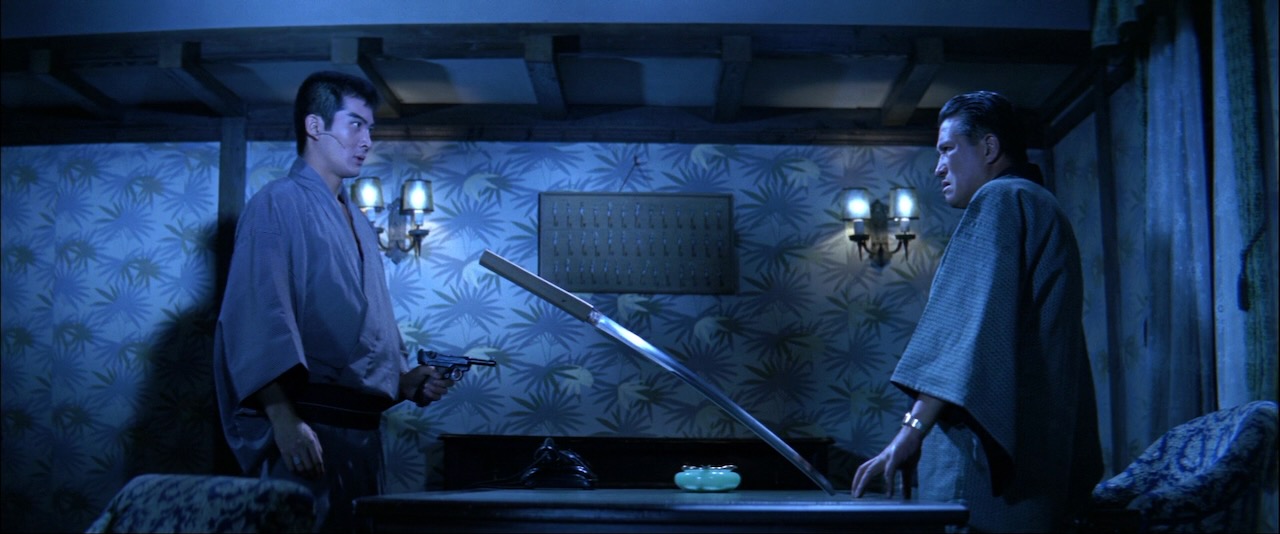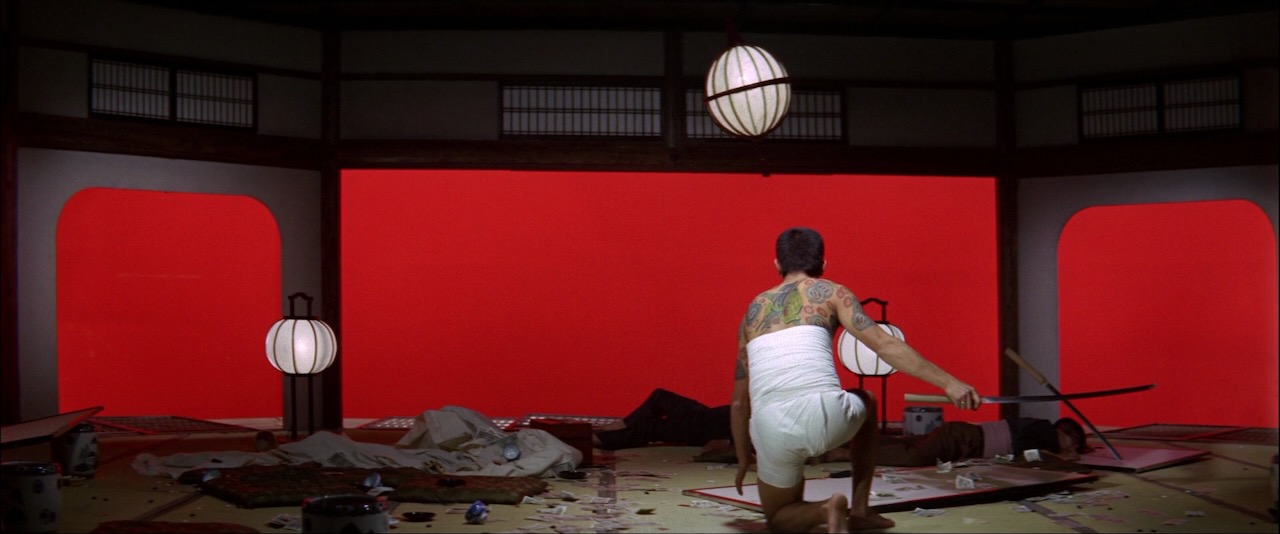Starts and ends with a labor strike, but I guess 1982 was too little/late for Demy to be considered political enough to hang with the New Wave gang again. This is a tragedy version of The Young Girls of Rochefort: all-singing, love and coincidence following multiple characters through 1955 Nantes, ending in suicide and disaster.

Our doomed lovers are Edith (Dominique Sanda, also suicidal in Bresson’s Une femme douce) and Francois (Richard Berry, now a writer/director). She’s dabbling in prostitution to get away from her loveless marriage, walking the streets in only a fur coat.
Edith’s mom (Danielle Darrieux, the mom in Rochefort) is Francois’s landlady, though they won’t discover this until late. Edith’s impotent husband is a redbearded Michel Piccoli. In 1967 Danielle Darrieux’s character was dating Piccoli, and now 15 years later he’s married to her daughter. Danielle is ex-aristocracy, politically opposed to her “anarchist” tenant, dealing with loneliness after the recent death of her husband and a seldom-visiting petulant daughter who claims to be in eternal love with the man she met the night before.


Francois is a junior dockworker, so is afraid of losing his job during the strike. His sweet, lovely girlfriend Violette (Fabienne Guyon, a singer and stage actress) is pregnant, has a sweet, lovely mother (Anna Gaylor), but Francois tells Violette about his love affair and breaks everyone’s hearts. He joins his balding coworker (Jean-Francois Stevenin who plays the balding dude in everything: Le Pont du Nord, Small Change, The Limits of Control) on the front lines, and the movie ends how it must: Piccoli slashes his own throat, Francois gets his head smashed by the cops and Edith shoots herself.
Francois and Stevenin, with union leader Jean-Louis Rolland in the hat:

This was the last film from the box set, so I checked out the exhaustive A to Z extra by James Quandt. “Given his happy childhood, one wonders what accounts for all the broken families in his films.” Demy considered Les Dames du Bois de Boulogne “the formative influence of his career” and Quandt displays similarities between Bay of Angels and Pickpocket. “The director once said that his ideal would be to make fifty interlocking films elaborating on his characters’ overlapping destinies.” I knew about the Cocteau and Ophuls connections, but the segment on influences from paintings was fresh. Interesting sidenote on the axe murderer in Rochefort, and Une Chambre en Ville was said to be Demy’s dream project and he was crushed when it flopped.

















